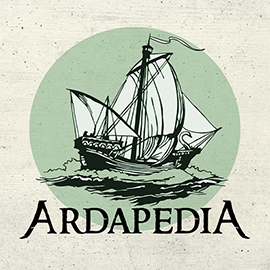Diskussion:Starren: Unterschied zwischen den Versionen
Saelon (Diskussion | Beiträge) K (Neuer Abschnitt →Etymologie) |
Saelon (Diskussion | Beiträge) K (ganzes zitat) |
||
| Zeile 5: | Zeile 5: | ||
== Etymologie == | == Etymologie == | ||
Zur Etymologie: J. R. R. Tolkien selbst schreibt zur Bedeutung der Bezeichnung, ''Stoor'' sei der Name von '[a] kind of hobbit, of heavier build. This is early | Zur Etymologie: J. R. R. Tolkien selbst schreibt zur Bedeutung der Bezeichnung, ''Stoor'' sei der Name von '[a] kind of hobbit, of heavier build. This is early E. ''stor, stoor'' "large, strong", now obsolete. Since it is thus supposed to be a special hobbit-word not current in CS, it need not to be translated, and may be represented by a more or less 'phonetic' spelling according to the LT use of letters. But an archaic or dialectical word of this sense in the LT would also be acceptable.'<br> | ||
– Quelle: Auszug aus '' | – Quelle: Auszug aus ''Nomenclature of The Lord of the Rings'', erschienen in ''The Lord of the Rings: A Reader's Companion''. Ist auch bereits als Quelle im Artikel angegeben. --[[Benutzer:Saelon|Saelon]] 19:02, 11. Apr. 2010 (CEST) | ||
Version vom 11. April 2010, 18:12 Uhr
Hat jemand eine Quelle, in der steht, das die Starren sich Bärte wachsen lassen konnten?--Carosi 16:57, 9. Okt 2004 (CEST)
Okay selbst gefunden, aber da ist nur von einem Flaum die Rede. Quelle ist die angegebene. --Carosi 17:06, 9. Okt 2004 (CEST)
Etymologie
Zur Etymologie: J. R. R. Tolkien selbst schreibt zur Bedeutung der Bezeichnung, Stoor sei der Name von '[a] kind of hobbit, of heavier build. This is early E. stor, stoor "large, strong", now obsolete. Since it is thus supposed to be a special hobbit-word not current in CS, it need not to be translated, and may be represented by a more or less 'phonetic' spelling according to the LT use of letters. But an archaic or dialectical word of this sense in the LT would also be acceptable.'
– Quelle: Auszug aus Nomenclature of The Lord of the Rings, erschienen in The Lord of the Rings: A Reader's Companion. Ist auch bereits als Quelle im Artikel angegeben. --Saelon 19:02, 11. Apr. 2010 (CEST)
